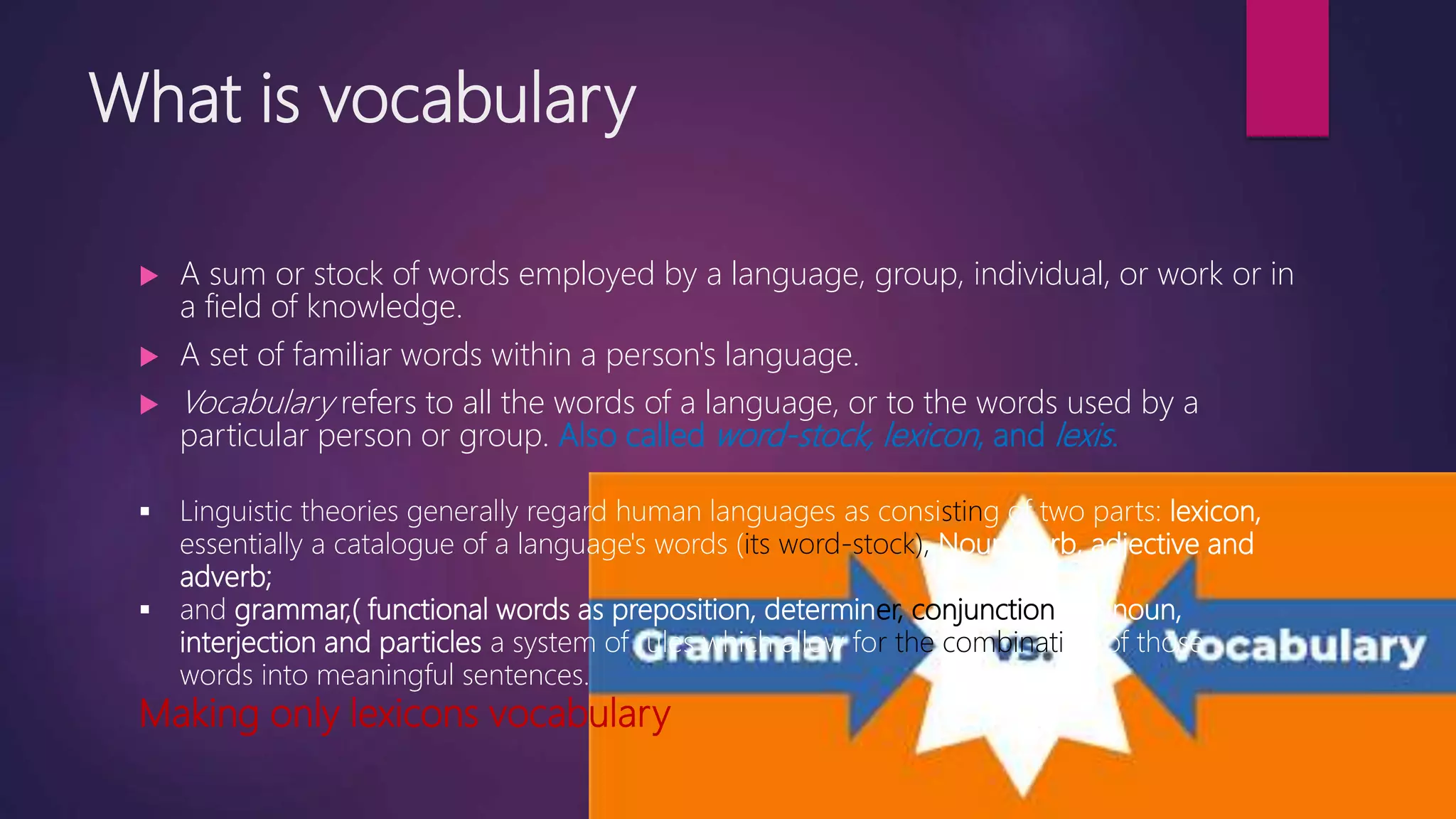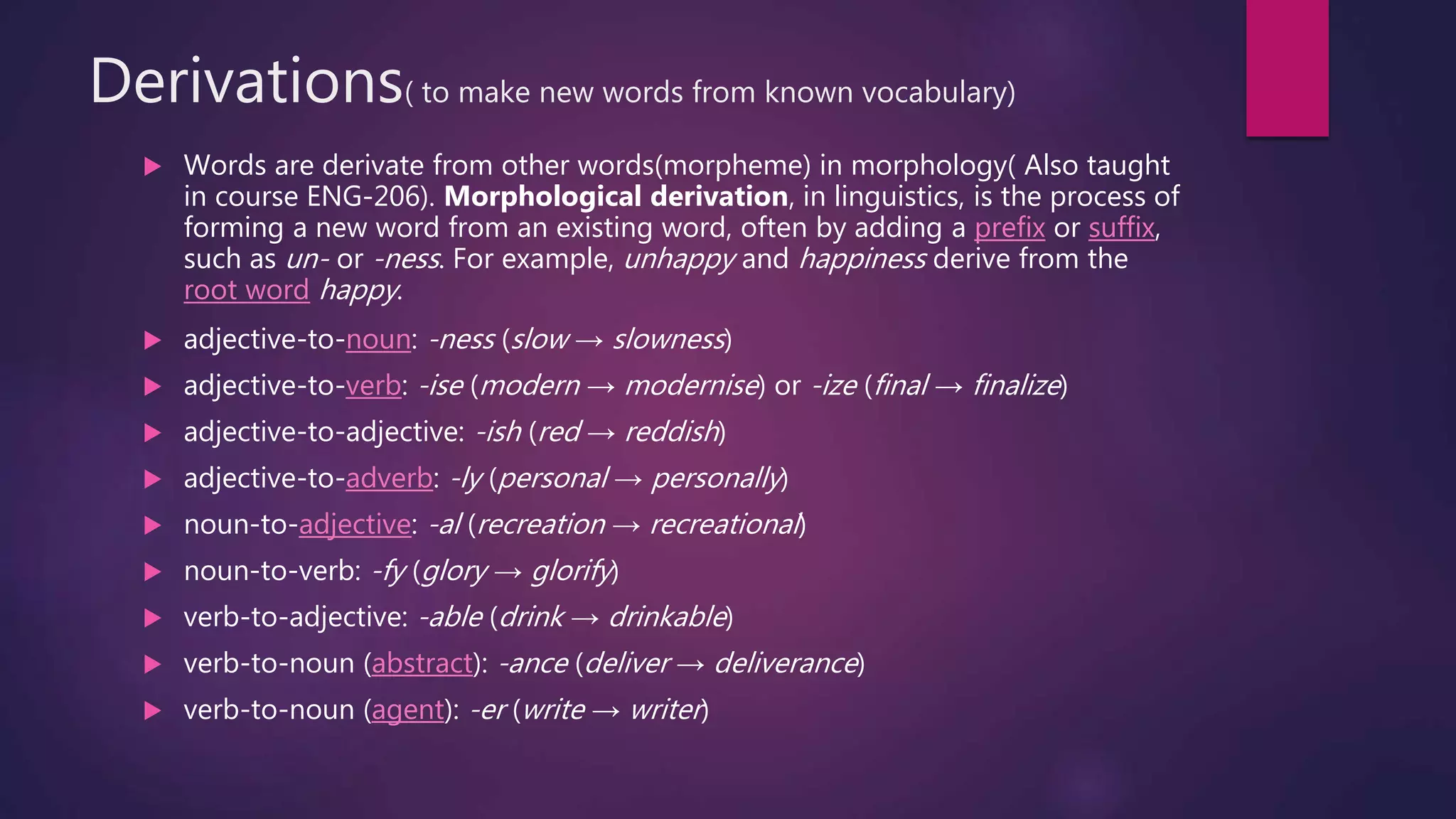Vocabulary building is important to communicate effectively. There are four types of vocabulary: reading, listening, writing, and speaking. Building vocabulary requires making word lists, memorizing words, using mnemonics to form associations, reading extensively, and learning word origins through morphology. Deriving new words from existing words helps expand one's vocabulary. Maintaining a vocabulary requires consistent practice using new words.










